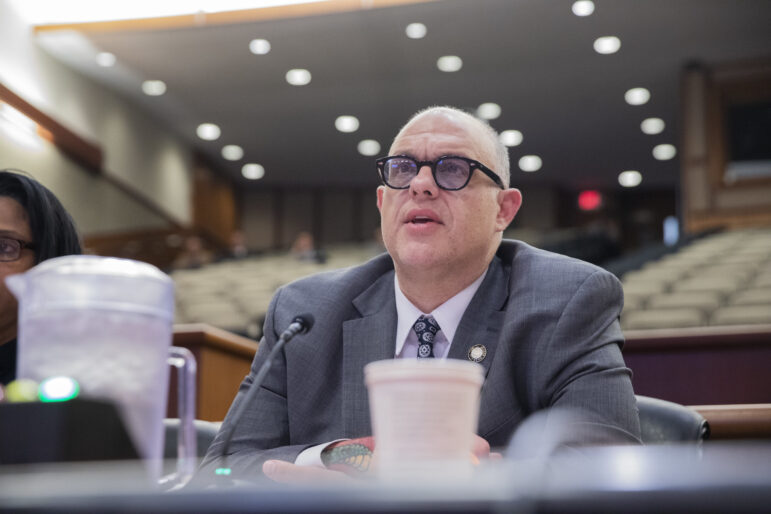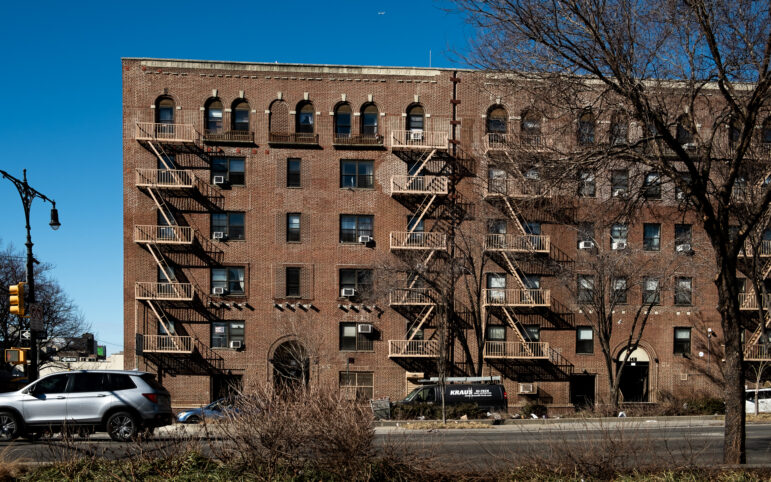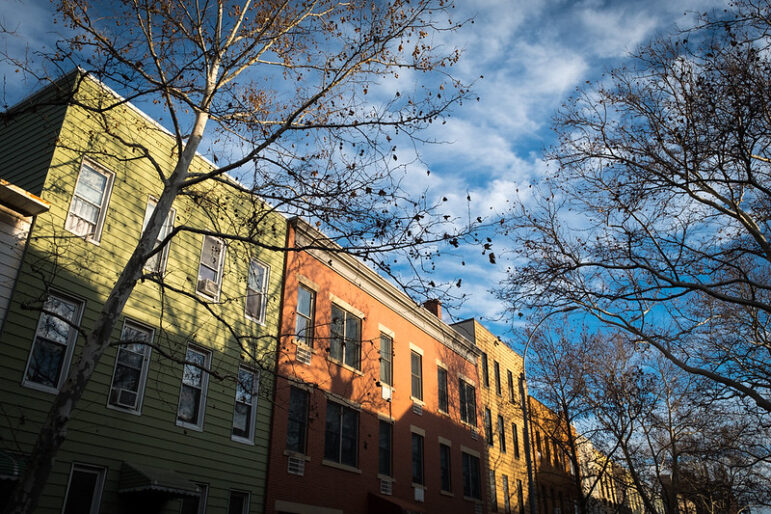Hattie, a Coney Island resident with AIDS, remembers the day she maneuvered through the crowded city on her prosthetic leg to reach the local Social Security office in south Brooklyn. There, she received good news: her son Darren, recently diagnosed with a learning disability, qualified for Supplemental Security Income (SSI). For a low-income single parent living with a difficult disease, this meant a measure of relief.
SSI, a federal and state benefit for disabled people with minimal work history, would cover the extra expenses associated with caring for Hattie’s disabled son, then 10 years old. To apply for SSI, Hattie completed an interview, compiled documents, filled out paperwork, and contacted doctors, teachers and agencies. But her efforts would not be fully rewarded.
It turned out that money would be deducted monthly from Darren’s SSI disability benefits to cover the cost of rent because Hattie already received AIDS-related emergency shelter allowance from the city’s HIV/AIDS Services Administration (HASA). The way the calculations generally went for a family of three like hers, receiving $660 of SSI meant a decrease in other benefits, for a monthly income of about $1,484. Some rent money would come from SSI, taking that benefit down to an actual monthly payment of $484.
Two years later, Hattie, now 39, continues to struggle to pay her rent and provide for her family. “I don’t understand why they have to” deduct the money, she said. “And there’s nothing I can do about it.”
Hattie and her two sons make up just one of hundreds of households in New York City left feeling helpless in the face of this policy. That changed on Jan. 22, when Gov. Spitzer delivered his executive budget, which restores more than $550 per month in public assistance to 1,100 households statewide that receive an AIDS-related emergency shelter allowance. Not only does this proposed budget increase the amount of money these households can spend on basic living expenses, but it also eliminates a policy of former Gov. George Pataki that effectively decreased public assistance for poor families getting AIDS-related emergency shelter allowance.
“We reversed this policy because we didn’t believe it was right to penalize a very vulnerable population for receiving these other benefits,” said Matt Anderson, spokesman for the state Division of the Budget.
The effects of Spitzer’s budget proposal, if passed, will be felt most strongly in this part of the state, as New York City has the highest rate of AIDS cases in America. “It’s the difference between barely eating and eating healthy; traveling to school and staying close to home; being stably housed and being forced onto the streets,” said Michael Kink, the legislative counsel for Housing Works, a nonprofit HIV/AIDS service organization that’s been fighting for the funding restoration.
For Hattie, the new proposed budget means that SSI benefits could be separated from other public assistance coming in to her household – and invested into Darren’s education. A family like hers would receive $660 in SSI for Darren, $1,000 rent allowance paid by HASA, and $411 in cash assistance for food and transportation for the rest of the family. The household’s total monthly income would then be $2,071 – or $587 more than the current amount.
Called “SSI invisibility,” the statewide practice of excluding the SSI recipient from the family budget to determine the household’s public assistance allocation was routine prior to 2002. SSI invisibility recognized the Social Services Law that that brought New York into compliance with federal welfare regulations. But in 2002, the state decided to give up SSI invisibility, claiming it was optional. Since then, advocacy groups including Housing Works and Empire Justice Center have been lobbying, organizing rallies and filing lawsuits to restore it.
A major victory for Housing Works came when a Court of Appeals ruling in June in Melendez v. Wing established the legal right for New York state to implement SSI invisibility for all households in which a member was an SSI recipient. But the decision of the state’s highest court was superseded by language in Pataki’s final executive budget. Pataki inserted a clause that specifically targeted formerly homeless households receiving enhanced rent grants, rendering them the only families on public assistance ineligible for SSI invisibility.
“It’s a horrible thought that the most vulnerable people would be the ones policymakers would strike out against,” said Kink.
This policy was part of Pataki’s effort to cut welfare rolls and close budget gaps. “It reveals a lack of understanding of how difficult it is for poor people, much less families with more than one disabled person, to survive on the amount of money they’re receiving,” says Cathy Bowman, director of the HIV Project at South Brooklyn Legal Services. Policymakers “felt justified in reducing the amount of cash to live on because people with HIV were receiving more money for rent” than other poor families, Bowman said.
Spitzer’s new budget proposal removes the provision Pataki inserted. If approved by the Legislature, this budget will go into effect after April 1 and will cost about $7 million per year in state funds. Families affected would be re-budgeted to reflect the new policy. Because the proposal only calls for such prospective action, households would not be compensated for prior reduction of public assistance due to lack of SSI invisibility, which the Court of Appeals had ruled illegal for the years before Pataki’s appropriation law. Anderson, from the state budget division, said it’s just too difficult logistically to implement retroactive payments.
But in a related lawsuit, Doe v. Doar, a Monroe County judge decided in September that retroactive SSI payments should in fact be returned to more than 27,000 low-income households statewide.
Hattie, for one, is heartened by the recent judgments and hopes to receive the retroactive payments. “If you took money from the IRS [for example], they’re gonna want their money back,” she said. Her family does, too.








